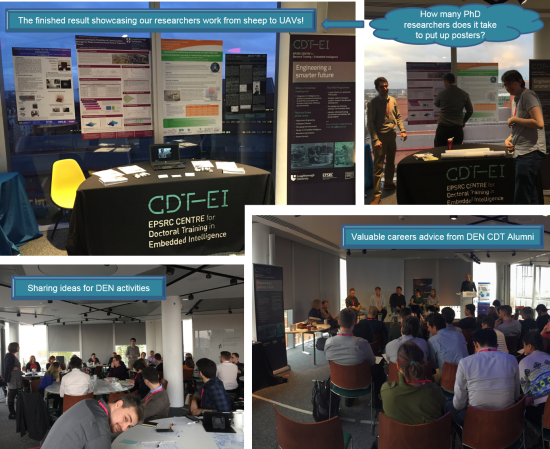Future Powertrain Conference (FPC2018)
9 March 2018
Wen Gu & Shaun Smith, of Cohort 3 & 4 respectively, recently attended the 2-day Future Powertrain Conference (FPC2018). The FPC2018 invites over 500 delegates from both academia and industry to present innovative research ideas and discuss the future of the industry.
This was the first conference for the students since joining the CDT-EI and the main reasons for attending was to first potentially discover new research topics and secondly anchor their own research by considering where they could add their knowledge to the problems in the industry. In addition, the FPC2018 offered networking sessions throughout both days allowing the valuable opportunity for the students to fully immerse themselves in the sector by speaking to experts in the industry and open the door for possible collaboration.
The students highlighted several presentations that were very useful for a variety of reasons. These included, but were not limited to, talks by Prof Colin Garner of Loughborough University who challenged us to consider the most efficient sources of energy and to revisit the debate of “Battery vs Internal Combustion Engine”, Richard Burke of the University of Bath who presented a catalogue of research opportunities and Doug Cross of Leadfoot who provided a talk on the future of autonomous vehicle and if they can keep up with the expectations of the consumer. Furthermore, talks by Dr Yan Wang of Ford and Dr Mark Peckham of Cambustion provided a greater insight of the challenges that face the sector from an industry perspective
Wen Gu presented a poster at the conference to demonstrate his current research. By implementing the machine learning algorithm, he developed a model learning approach to reflect the engine behavior faster and more accurate. The adaptive model predictive control method is employed to dynamically optimise the engine fuel economy based on the developed time-varying model. This approach is promising in improving fuel economy of powertrain systems and leading the way to next generation low carbon engines. At the end of the conference, he won the third prize of poster competition section.
The future powertrain conference returns in 2019 at the National Motorcycle Museum, Solihull, where students will again be attending representing the CDT-EI.
For further information visit futurepowertrains.co.uk/






